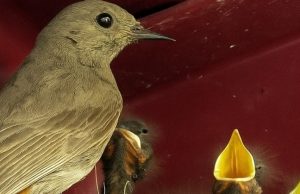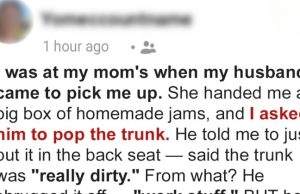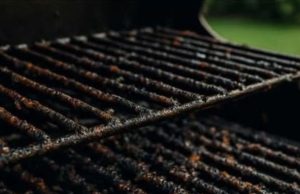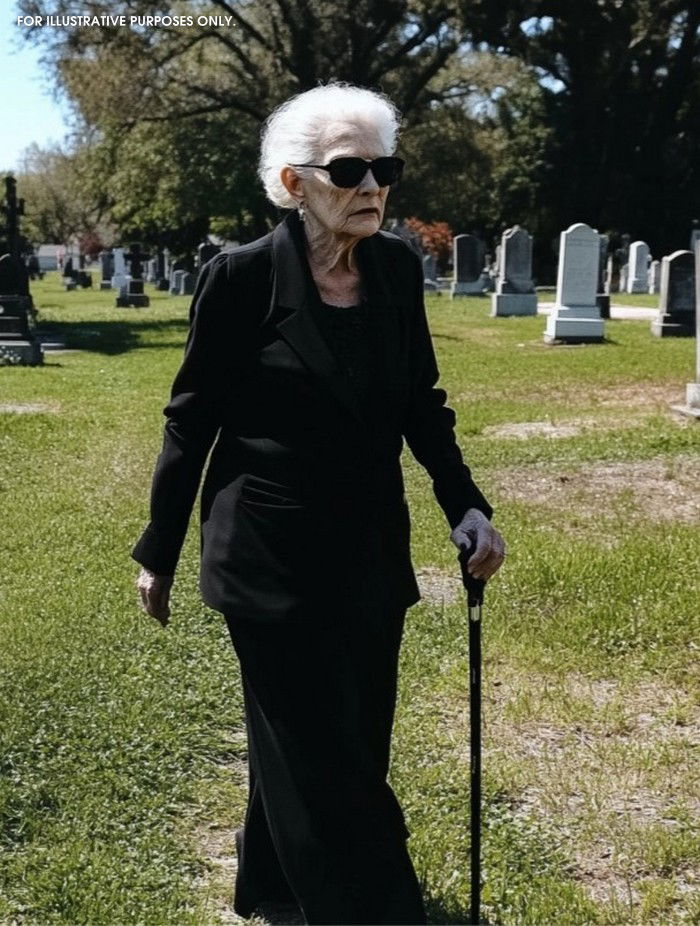
It had been six months since I had lost my father, and while life went on, the sadness remained.
I found peace in visiting his tomb once a week and sharing with him things I could no longer say.
I stood by his grave with a bunch of white lilies, his favorite.
“Goodbye, Dad,” I muttered, wiping away a tear.
As I turned to go, I observed a thin figure standing a few rows away next to a recently dug grave. An elderly blind woman wearing a plain black outfit grasped a white cane.
“Excuse me, ma’am,” I said softly, approaching her. “Do you need help?”
She turned her head toward me, her lips curving into a slight smile. “Oh, thank you, dear. I’d appreciate it if you could walk me home. My sons were supposed to pick me up, but I think they’ve forgotten.”

“Of course,” I said. “I’d be happy to help.”
She introduced herself as Kira. Her husband, Samuel, had pa:ss:ed away just days before.
“They didn’t even wait with me at the cemetery,” she continued bitterly. “My sons, Ethan and Mark. They said they’d come back in half an hour, but I waited two hours. Samuel always said they’d be the death of me, but I didn’t want to believe him.”
We arrived at her modest home, a charming brick house encircled by a rose garden. “Would you like to come inside for tea?” she inquired.
The inside was warm and pleasant, with faded photos on the walls. One drew my attention: a younger Kira and a man I guessed was Samuel, their hands intertwined, standing in front of the Eiffel Tower.
“Samuel installed cameras all over the house,” Kira explained as she poured tea. “He did not trust the boys.
I had no idea how much that small act of kindness would change my life.
The next morning, I was startled awake by a banging on my door. My heart raced as I stumbled out of bed, still half sleepy.

I opened the door to discover two men looking at me, flanked by a police officer. One of the men, maybe 35, broad-shouldered and enraged, pointed at me. “That’s her! She was in our mother’s house yesterday!”
“I walked her home from the ce:m:etery yesterday.”
The younger of the two males, approximately 25, took a stride toward me, his face flushed with rage. “And then what? You decided to rob her blind?”
“Mom told us you were in her house. She said you stayed for tea. Who else would’ve taken the money and jewelry?”
“This has to be a mistake. I didn’t take anything!”
How had things gone so wrong?
Kira was already at the station, seated in a corner with her cane resting on her knee. Her face lit up when she spotted me.
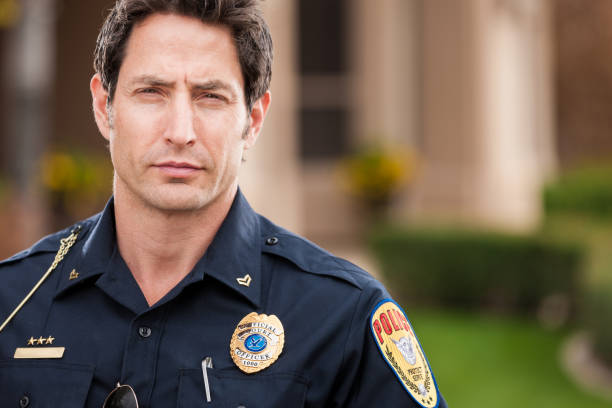
“Thank goodness,” she said, reaching out for my hand. “I told them you didn’t do it.” “And because they’re greedy.”
“Samuel installed cameras in the house, remember? Officer, I told you to check the recordings.”
Ethan’s face became pallid. “Mom, you don’t have to do this.”
“Oh, I think I do,” Kira shot back. “I’m tired of covering for you boys.”
One hour later, the corps returned carrying a laptop. “See?” I said, relief washing over me. “I didn’t take anything!”
Moments after my leaving, Ethan and Mark arrived in the picture, digging through drawers and cabinets. They emptied jewelry cases and took cash from an envelope stashed in a cookie jar.

Ethan stammered, “We… we were looking for paperwork!”
The brothers were arrested on the scene and charged with larceny and making a fake report.
I was free to leave, but the encounter had left a bitter taste in my mouth. As I accompanied Kira home that evening, she opened up more about her family.
“Samuel adored them when they were younger,” she said. “But as they grew older, they changed. They became greedy, always asking for money, never giving back.”
In the weeks that followed the horrific incident, I found myself pulled to Kira’s house more frequently than I anticipated. Our original bond, formed in the most unlikely of circumstances, strengthened with each visit.

“Maybe Samuel sent you to me.” Kira said.
“Thank you,” she whispered. “For being my light in a dark moment.”
“Sometimes, strangers become family in ways you never expect.”


